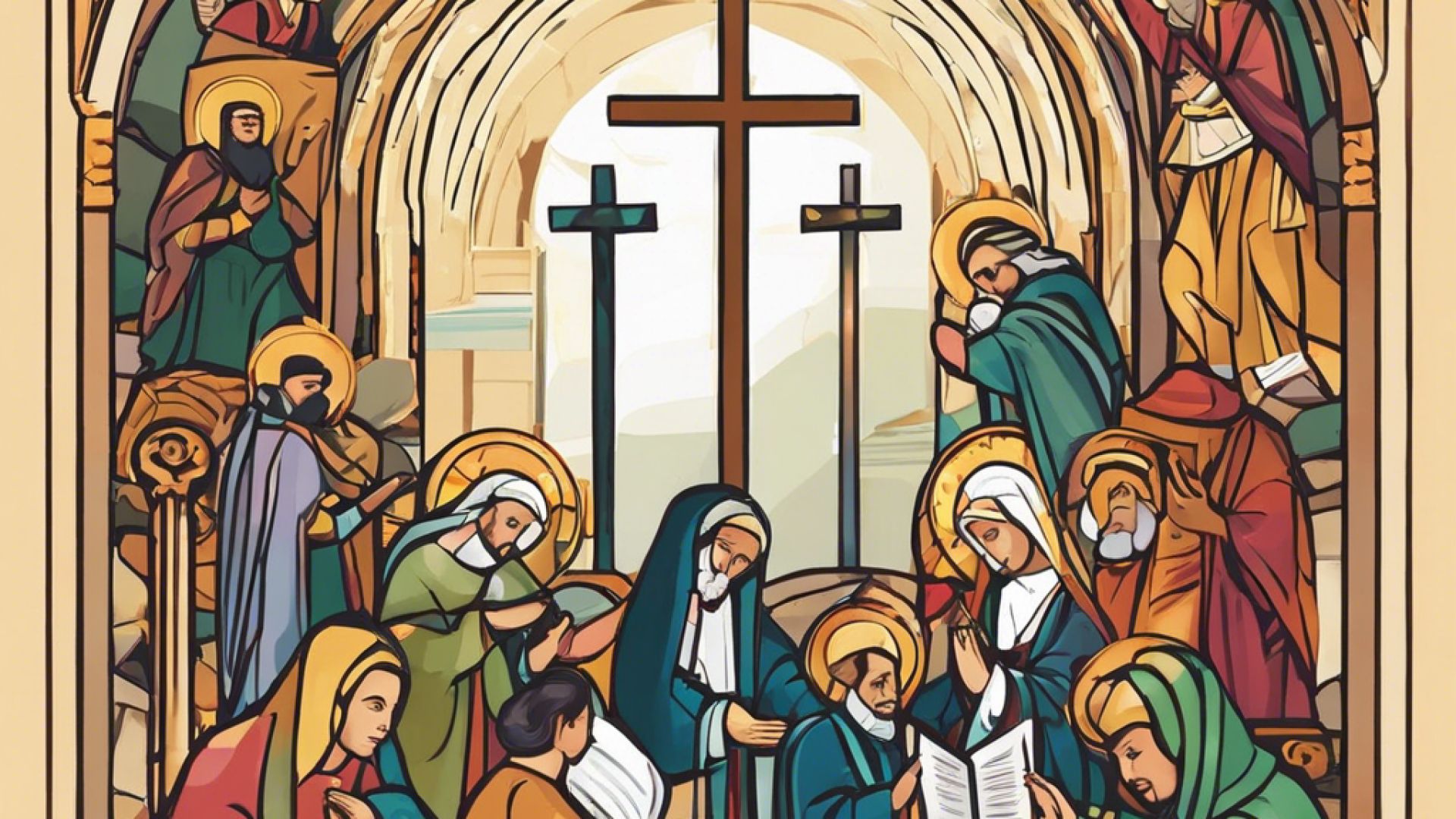1. Introduction
In this article, we will explore the origin and meaning of the Sabbath, its significance in the Christian faith, and its relationship with other religious traditions. The Sabbath is a day of rest and prayer that holds great importance for believers. We will also examine different interpretations of the Sabbath and its contemporary practices.
1.1 Context of the Article
The Sabbath has been a topic of discussion and interpretation for centuries. It holds a central place in religious traditions and has shaped the lives of believers throughout history. Understanding the origin and meaning of the Sabbath is essential to grasp its significance in the Christian faith.
1.2 Objective of the Article
The objective of this article is to provide readers with a comprehensive understanding of the Sabbath, its historical and spiritual significance, and its relevance in contemporary Christian practices. By exploring different interpretations and perspectives, we aim to open the door to further discussions and interpretations of the Sabbath.
2. Origin and Meaning of the Sabbath
The Sabbath, in its simplest definition, is a day of rest and worship. It has its roots in ancient religious traditions and is observed by various faiths around the world. The concept of the Sabbath can be traced back to the creation story in the book of Genesis, where God rested on the seventh day after creating the world.
2.1 Definition of the Sabbath
The Sabbath is traditionally understood as a day of rest, where believers are called to cease from their regular work and dedicate the day to worship and spiritual reflection. It is a time to reconnect with God and find renewal in His presence.
2.2 Traditional Interpretations
Throughout history, different religious traditions have interpreted the Sabbath in various ways. For some, it is a strict observance of refraining from any work or activities, while for others, it is a day of communal worship and fellowship. The Sabbath has also been seen as a symbol of liberation and freedom from the burdens of everyday life.
2.3 Analysis from the Perspective of Catholic Dispatch Internet Apostolate
The Catholic Dispatch Internet Apostolate offers a unique perspective on the Sabbath. They emphasize the importance of balancing rest and work, recognizing that both are essential aspects of human life. They encourage believers to find a rhythm of rest and worship throughout the week, rather than confining it to a single day.
3. Sabbath and Day of the Week
The Sabbath is traditionally associated with Saturday, the seventh day of the week. However, its spiritual significance goes beyond a specific day and extends to the concept of rest and worship in general.
3.1 Sabbath and Saturday
Saturday has been recognized as the Sabbath day in many religious traditions, including Judaism and some Christian denominations. It is a day set apart for rest and worship, where believers gather to honor God and seek spiritual nourishment.
3.2 Sabbath and its Spiritual Significance
While the Sabbath is often associated with a specific day, its spiritual significance transcends time and extends to the concept of rest and worship. It serves as a reminder to prioritize our relationship with God and find solace in His presence.
3.3 Comparison with Other Religious Traditions
Various religious traditions have their own practices and observances related to rest and worship. While the specifics may differ, the underlying principle of setting aside time for spiritual reflection and connection with the divine is a common thread among these traditions.
4. Importance of the Sabbath in the Christian Faith
The Sabbath holds great importance in the Christian faith, as it is a day dedicated to rest, prayer, and reflection. It serves as a reminder of God's creation, His rest after completing His work, and the hope of resurrection through Jesus Christ.
4.1 The Sabbath as a Day of Rest and Prayer
For Christians, the Sabbath is a day to rest from their regular work and engage in prayer and worship. It provides an opportunity to recharge spiritually and seek guidance and strength from God.
4.2 Connection between the Sabbath and the Resurrection of Christ
The Sabbath also holds significance in relation to the resurrection of Jesus Christ. Christians observe the Sabbath on Sunday, the first day of the week, to commemorate the resurrection and celebrate the victory over sin and death.
4.3 Contemporary Practices Related to the Sabbath
In contemporary Christian practices, the Sabbath is observed in various ways. Some believers attend church services, engage in personal prayer and reflection, spend time with family, or participate in acts of service and charity. The focus is on nurturing one's relationship with God and finding spiritual rejuvenation.
5. Conclusion
In conclusion, the Sabbath holds deep significance in the Christian faith and other religious traditions. It is a day of rest, worship, and spiritual reflection, providing believers with an opportunity to reconnect with God and find renewal. By understanding the origin and meaning of the Sabbath, we can appreciate its importance and explore different interpretations that enrich our spiritual journey.
5.1 Summary of Key Points
– The Sabbath is a day of rest and worship observed by various religious traditions.- It has its roots in the creation story and is traditionally associated with Saturday.- The Sabbath holds spiritual significance beyond a specific day, emphasizing the importance of rest and worship in general.- In the Christian faith, the Sabbath is a day dedicated to rest, prayer, and reflection, with a focus on the resurrection of Jesus Christ.- Contemporary practices related to the Sabbath vary but aim to nurture one's relationship with God and find spiritual rejuvenation.
5.2 Opening to Other Possible Interpretations
While this article has explored various interpretations and perspectives on the Sabbath, it is important to acknowledge that there may be other valid interpretations and practices. The Sabbath is a deeply personal and spiritual experience, and individuals may find different ways to observe and honor this sacred time.
